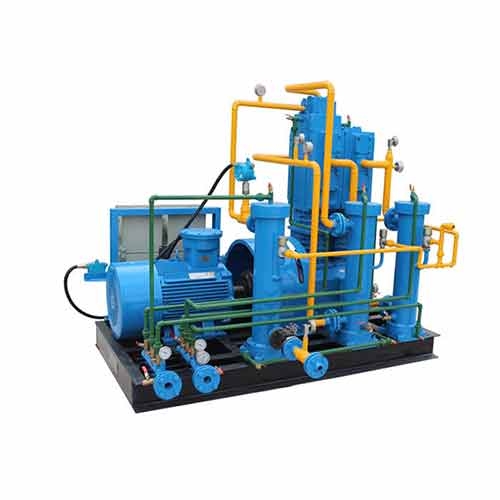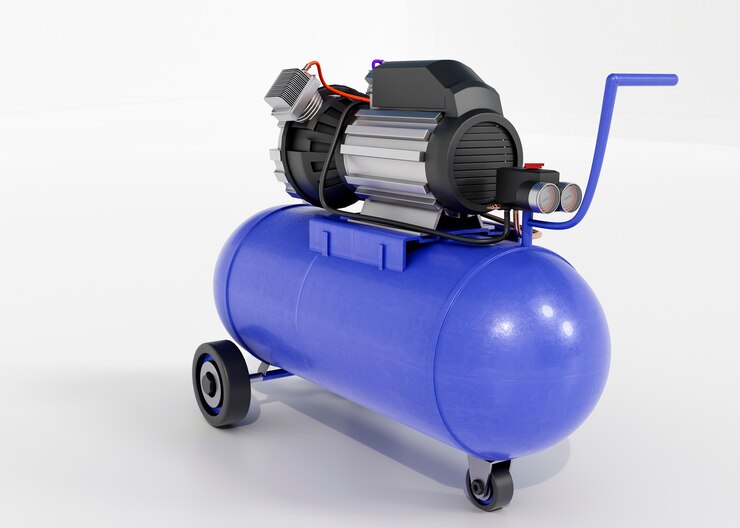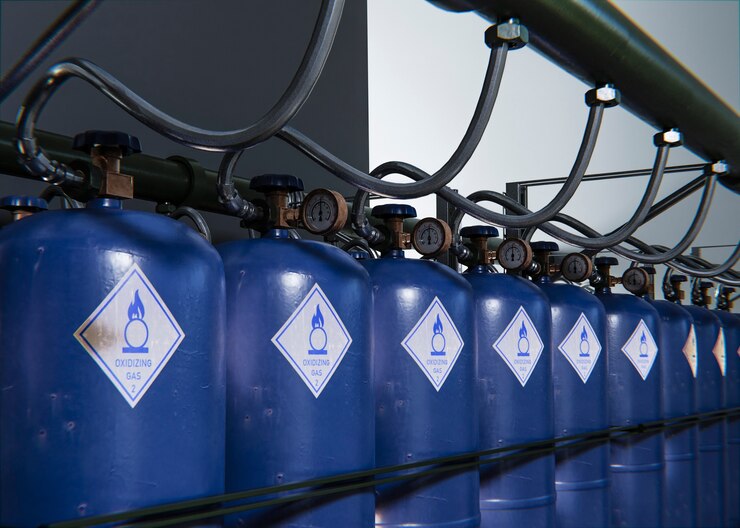Compressors in the Gas and Biogas Industry: Powering Efficiency and Sustainability
The gas and biogas industry holds a vital position, engaged in producing, processing, and transporting a range of gases, encompassing natural gas and sustainable biogas. These gases are indispensable in energy generation, industrial operations, and promoting environmental sustainability. Within this industry, compressors for the gas and biogas industry serve as critical components, facilitating the efficient compression and conveyance of gases, thus guaranteeing their accessibility for a multitude of applications.
Compressor Types
Reciprocating Compressors
- Utilize a piston and cylinder arrangement for gas compression.
- Commonly found in smaller-scale applications。
- Well-suited for applications requiring high-pressure compression and lower capacity.
Rotary Compressors
- Operate through rotating mechanisms, including scroll, screw, and vane designs.
- Known for their compactness, efficiency, and versatility across various applications.
Screw Compressors
- Feature two interlocking helical rotors to compress the gas.
- Widely applied in industry due to their reputation for reliability, efficiency, and adaptability to variable workloads.
Applications in the Gas and Biogas Industry
Gas Compression for Transportation and Storage
- Compressors are essential for the long-distance transport of natural gas and various gases via pipelines.
- They elevate gas pressure to ensure efficient transmission and maintain a consistent flow rate.
- Compressed natural gas (CNG) and liquefied natural gas (LNG) stations rely on compressors for vehicle fueling and gas storage.
Biogas Production and Utilization
- Compressors contribute to biogas production by pressurizing gases generated through organic matter decomposition.
- Biogas finds applications in electricity generation, heating, and as a renewable natural gas alternative.
- Compressors play a pivotal role in enhancing the economic and environmental viability of biogas.

Petrochemical and Natural Gas Processing
- Within petrochemical facilities, compressors are integral for the refinement and treatment of raw gases, including the removal of impurities from natural gas.
- They ensure gas quality compliance, enabling utilization across diverse industrial processes.
Gas Transmission and Distribution
- Compressors uphold gas pressure in distribution networks, facilitating the delivery of gas to residences, businesses, and industries.
- This process guarantees a consistent gas supply for heating, cooking, and industrial applications. Additionally, compressors assist in regulating pressure and gas flow within distribution systems.
Compressors serve as indispensable components within the gas and biogas industry, supporting an array of functions encompassing transportation, storage, gas processing, and sustainable biogas utilization. Their role in maintaining pressure and facilitating efficient gas movement is paramount for the industry’s continued functionality and environmental sustainability.
Key Features and Considerations
Efficiency and Energy-Saving Features
- Compressors for the gas and biogas industry designed with energy-efficient features help reduce operating costs and minimize environmental impact.
- Variable speed drives (VSDs), economizer cycles, and advanced control systems optimize compressor performance.
- Efficient compressors help lower energy consumption, making them more sustainable choices for the gas and biogas industry.
Safety Considerations
- Safety is paramount in gas-related operations. Compressors must adhere to rigorous safety standards.
- Features such as pressure relief valves, emergency shutdown systems, and robust materials ensure safe compressor operation.
- Regular safety inspections and adherence to industry-specific safety protocols are crucial.
Maintenance Requirements
- Compressors require periodic maintenance to sustain efficiency and longevity.
- Routine tasks include oil changes, filter replacements, and inspection of components like valves and seals.
- Scheduled maintenance minimizes downtime and ensures reliable operation.
Environmental Impact
- Compressor design and choice of refrigerants can impact the environment.
- Balancing efficiency, safety, maintenance, and environmental considerations is pivotal when selecting and operating compressors in the gas and biogas industry. Prioritizing energy-saving features, adhering to safety standards, conducting regular maintenance, and minimizing environmental impact contribute to sustainable and responsible compressor usage in this sector.
Case Studies
Examples of Compressors Used in Specific Gas and Biogas Applications
In a biogas plant, a piston compressor was employed to pressurize biogas generated from organic waste. This compressed biogas was then used for electricity generation, reducing greenhouse gas emissions and promoting renewable energy.
A natural gas transmission company utilized piston compressors to boost gas pressure in pipelines. These compressors enabled efficient and reliable long-distance transportation of natural gas to meet regional energy demands.
Benefits and Outcomes Achieved Through Compressor Use
The adoption of efficient rotary screw compressors in a biogas facility led to a significant reduction in operational costs and increased energy production.
This sustainable practice contributed to environmental conservation.
By using piston compressors, the natural gas transmission company enhanced the reliability of gas supply to consumers, reducing downtime and ensuring a consistent energy source. This resulted in improved service quality and customer satisfaction.
Future Trends and Innovations
Advancements in Compressor Technology
Continuous innovation is driving the development of more energy-efficient and compact compressors. Smart compressor systems with IoT integration and predictive maintenance capabilities are emerging, optimizing performance and reducing downtime.
Potential Regulatory Changes
Anticipated changes in environmental regulations may influence efficiency standards for compressors. Stricter emissions standards and energy efficiency requirements are expected to shape the compressor market, promoting greener and more efficient technologies.
CONCLUSION
In conclusion, compressors for the gas and biogas industry stand as essential pillars in the gas and biogas industry, facilitating the efficient flow and utilization of gases. From enhancing energy transmission to promoting renewable biogas, their role in driving efficiency and sustainability is undeniable. With ongoing innovations and a growing commitment to eco-conscious practices, the future of compressors in this industry holds the promise of even greater efficiency, reduced environmental impact, and a more sustainable energy landscape.



